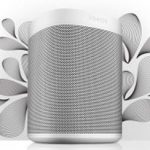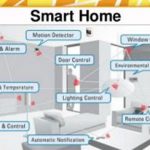Research shows that Smart Homes are now “Brain-Friendly”

From neuroscience research, we have learned that owning a smart home can yield a plethora of neurophysiological and psychological benefits. Rather than being viewed as something useful or convenient, smart homes should now be recognized as mental-health tools, ready to aid the smart-home owner in fulfilling his/her natural desire for environmental control. According to researchers at Columbia University and Rutgers University, humans “need for control is a biological imperative for survival,” and that “control — whether real or perceived — is innately adaptive largely because it reduces stress and maximizes the efficiency with which needs are gratified,” as well as optimizes brain function.
Stress Reduction:
In a 2008 Miami University study, researchers confirmed that humans feel less stress when they are in control. They found that when people cannot control their environment, they suffer from physiological stress (symptoms such as elevated heart rate, high blood pressure and an increase in cortisol levels), and when they are permitted to control their environment, the symptoms of physiological stress is dramatically lower. In other words, we feel stressed when we don’t have control. One can only assume, therefore, that smart-home owners are experiencing at least a little less stress than the rest of us.
For example, rather than worrying from a distance about the pipes bursting in their vacation home, a smart-home owner can just simply remotely access the vacation home’s status from a distance. Whereas, those who don’t have a smart home…they would simply have to either physically go check on the vacation home or worry helplessly. Simply put, smart-home owners aren’t going to be susceptible to the same stressors of those who lack the remote access.
Optimizes Brain Function:
Also, the brain’s prefrontal cortex (a region that governs high-level cognitive functions such as working memory, emotional regulation and goal-oriented behavior) actually strengthens whenever someone feels like they are in control over their environment. According to multiple medical studies from various academics, individuals who feel a greater sense of environmental control demonstrate increased persistence, motivation, and optimism. It is not surprising to learn that smart-homes are considered “brain-friendly” and having one now comes with a newly found perk… mental health well-being.
Satisfies the Need for Gratification:
The human brain is designed to both motivate and reward a person for satisfying his or her desires as quickly as possible. What if a stranger walked up to you and gave you a choice: you can have the $20 bill that they are offering you today, or you can choose to meet up with them sometime next week and receive $30 instead…what would you do? Would you wait?
Most likely, you wouldn’t wait for the $30. Because our brains value things that are closer in time and distance, we naturally tend to favor rewards that can be obtained faster. Voice-activated smart-home devices cater to the homeowner’s primitive brain by creating an environment in which the inherent desire for instantaneous gratification is continuously satisfied. Obtaining rapid and accurate answers to any question, playing your favorite song moments after you request it, and automatically drawing the shades as you crawl into bed ignite the brain’s pleasure center and give rise to reward-related sensations.
Simply stated, smart-home devices that cater to “your wish is my command” make our lives easier, more pleasurable, less stressful and happy….also known as…”Brain-Friendly” Benefits.









